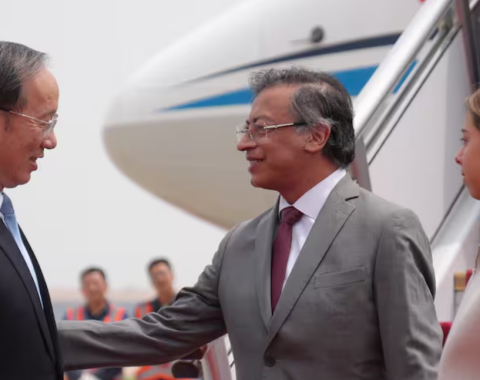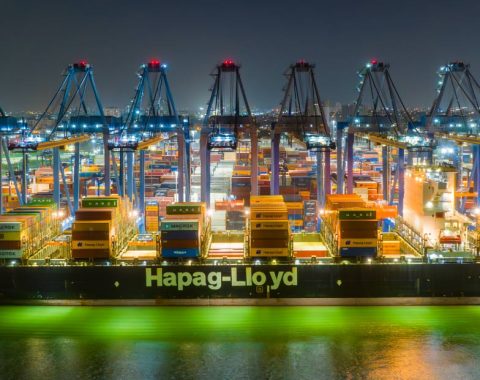On October 18th, a landmark decision was made by the Biden administration: a temporary relief from sanctions on Venezuela’s oil, gold, and gas sectors. This decision, which will last at least six months, was a response to an agreement on Venezuela’s 2024 presidential elections, where the Venezuelan government and opposition reached consensus to include international observers.
The U.S. Treasury Department emphasized this relaxation was due to recent democratic developments in Venezuela. While the general licenses were issued for the oil, gas, and gold sectors, the primary market for Venezuelan bonds remains restricted. With these sanctions lifted, Venezuela now has the green light to renew trade ties with other nations in the region, especially the Caribbean.
The U.S. has been keen to underscore that these concessions are contingent upon President Nicolás Maduro’s continued commitment to democratic reforms, especially concerning opposition presidential candidates and the release of political prisoners. This move follows months of negotiations where Washington pressured Caracas for democratic elections in exchange for sanction relief.
Gustavo Petro’s Persistent Call for U.S. Action on Venezuelan Sanctions
Colombian President Gustavo Petro has been an assertive voice when it comes to the Venezuelan situation. Even before his presidency, Petro had repeatedly highlighted the humanitarian implications of the ongoing Venezuelan crisis, most notably in terms of migration. His concerns echo throughout the continent, which has been directly impacted by the significant outflow of Venezuelans seeking refuge and better economic prospects elsewhere.
On September 8, 2023, Petro made an appeal through X (previously Twitter): “Unblock Venezuela, conduct free elections, reduce methane emissions in Venezuela, and end the exodus through the Darién to the U.S.” This plea was in response to the escalating migrant situation. Data suggests that the migratory exodus at the Colombia-Panama border has exceeded last year’s figures. Over 307,000 individuals have chosen this perilous path in 2023, compared to the 248,000 that crossed the year before.
In another instance on X, Petro articulated a proposal to the U.S. and Venezuela to “unblock the SDRs (Special Drawing Rights) of Venezuela in the IMF, which belong to Venezuela, and process them through the Latin American Development Bank, CAF.”
Furthermore, on April 21, 2023, detailed Petro’s proposal to U.S. President Joe Biden. During a meeting at the White House, Petro suggested a gradual lifting of sanctions on Venezuela in return for the country meeting specific electoral conditions. The Colombian president emphasized the need for a multi-faceted approach, including an electoral timeline for Venezuela with guarantees, the country’s inclusion in the Inter-American Human Rights System (a body of the Organization of American States), and a gradual de-escalation of sanctions.
His insistence as a leader deeply concerned about the immediate and long-term consequences of the Venezuelan crisis on the region. Petro’s unwavering stance and active diplomatic engagements underscore his determination to bring relief to the affected communities, both within and outside of Venezuela.
A Historical Balance of Trade between Colombia and Venezuela
From a historical perspective, the economic relationship between Colombia and Venezuela is intricate. With a shared border and intertwined cultures, the countries have witnessed mutual commerce and fluid migration patterns for centuries. In regions like the Guajira Peninsula, indigenous communities rely heavily on cross-border trade for their livelihood. Similarly, in the southern Andean regions bordering Colombia, commerce — both legal and contraband — thrives, affecting the broader economies of both nations.
In 1994, the total exports of both countries to the world amounted to US$ 24.451 billion, with Venezuela contributing 64.2% and Colombia 35.8%. However, when focusing on non-traditional exports, Colombia led with 53.1% in the same year, with non-traditional exports making up 34.7% of the total.
More recently, despite the historically significant trade relationship, by the end of 2021, Colombian exports to Venezuela had shrunk to USD 331 million, a staggering 94.5% drop from 2008. This decline starkly contrasts the 2008 figure when Colombian exports to Venezuela surpassed USD 6 billion, accounting for 18% of Colombia’s total exports.
The Silver Lining for Colombia and Venezuela
The lifting of sanctions on Venezuela comes as a beacon of hope for rejuvenating bilateral trade ties with Colombia. The decision does not merely represent an economic opportunity but also serves as a stepping stone toward mending and strengthening diplomatic relations.
Colombia and Venezuela have a rich tapestry of shared history and culture. This easing of restrictions can reactivate trade routes, bolstering both economies and potentially reducing poverty. Furthermore, it can lead to a stabilization of socio-economic conditions, potentially curbing the mass migrations witnessed in recent years.
For both countries, this news signifies more than just trade numbers; it symbolizes a rekindling of brotherhood, collaboration, and a shared vision for a prosperous future. Mutual trust and cooperation will not only enhance their economic landscapes but also re-establish a long-standing bond that promises peace, prosperity, and progress for both nations.





